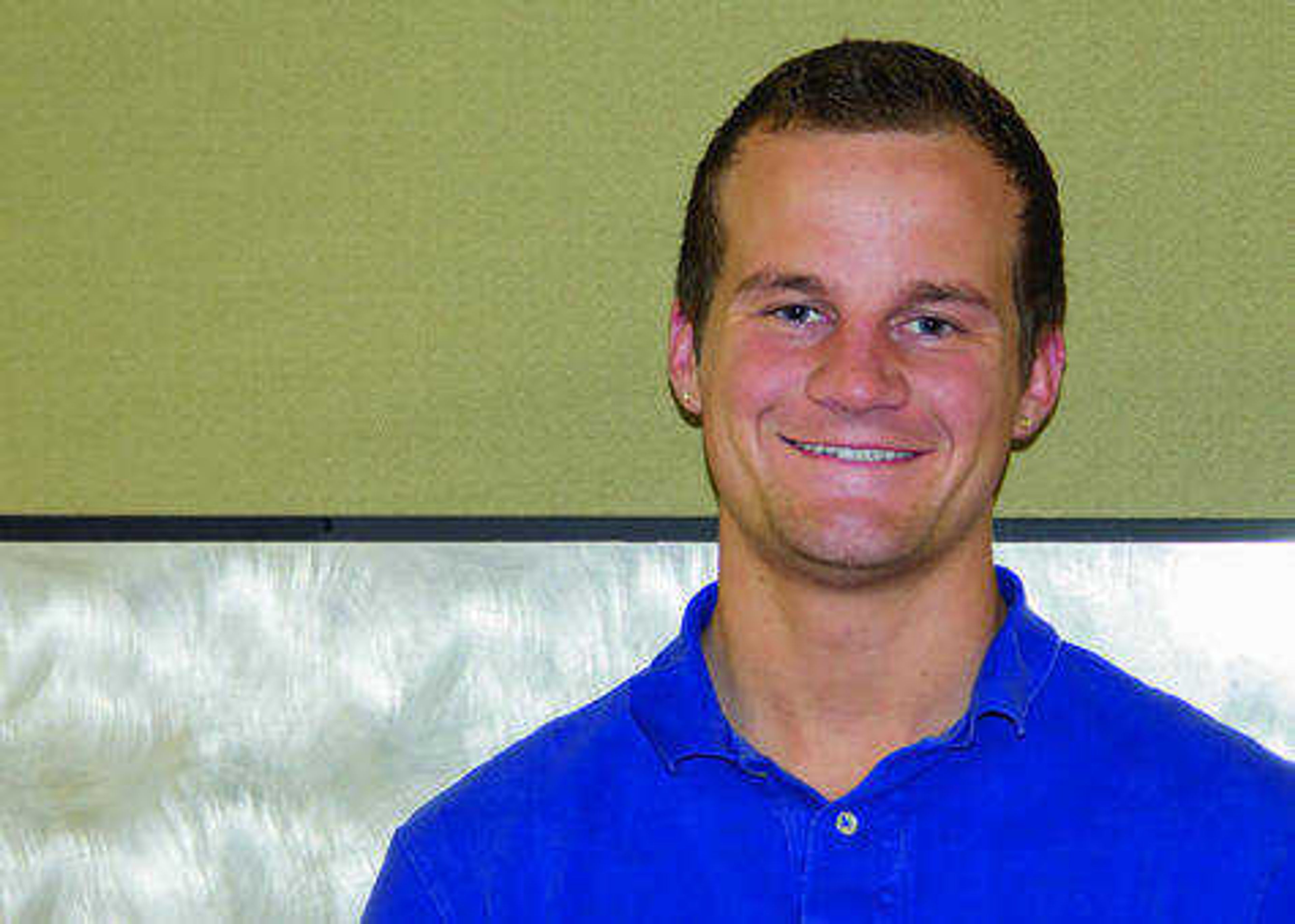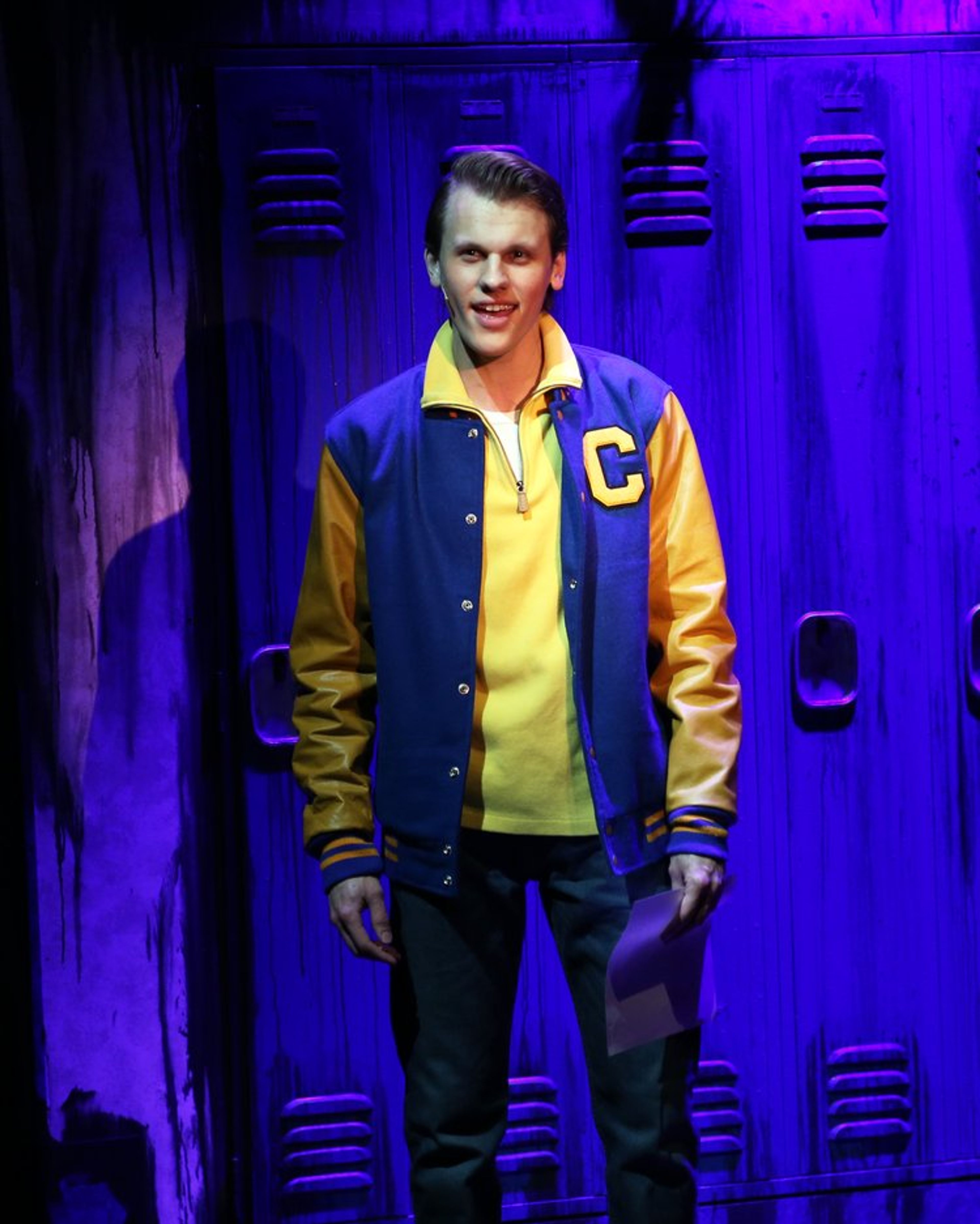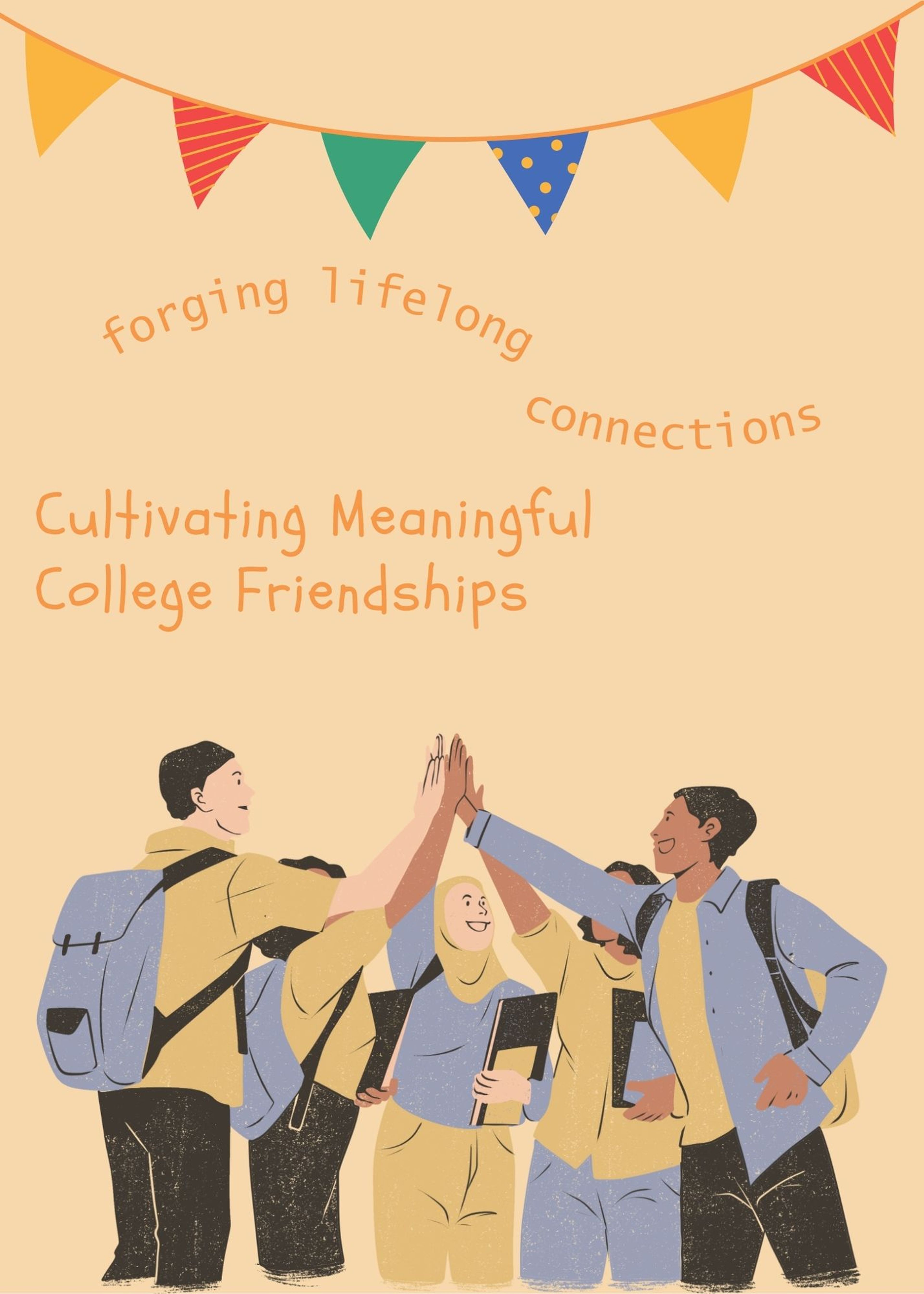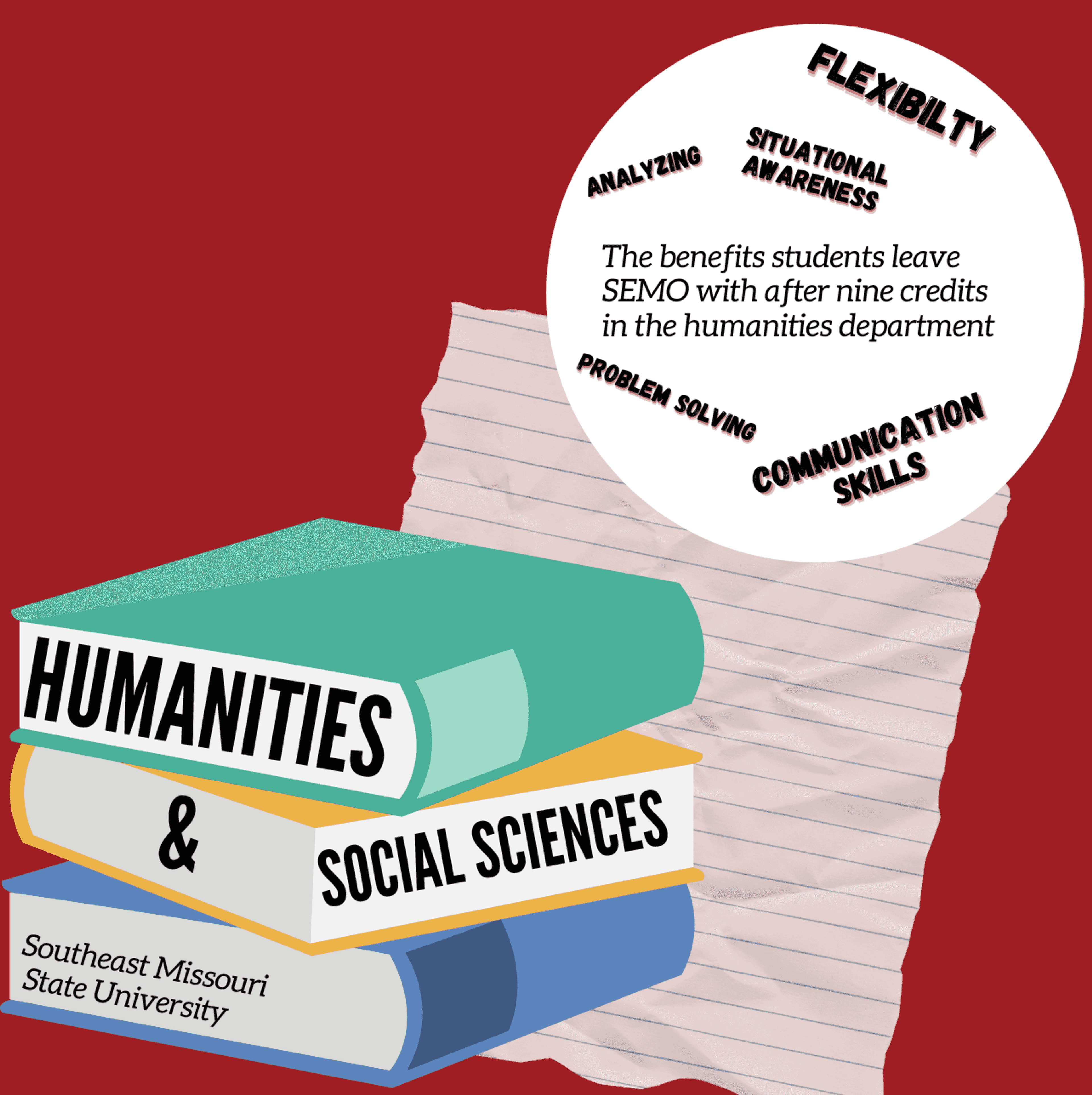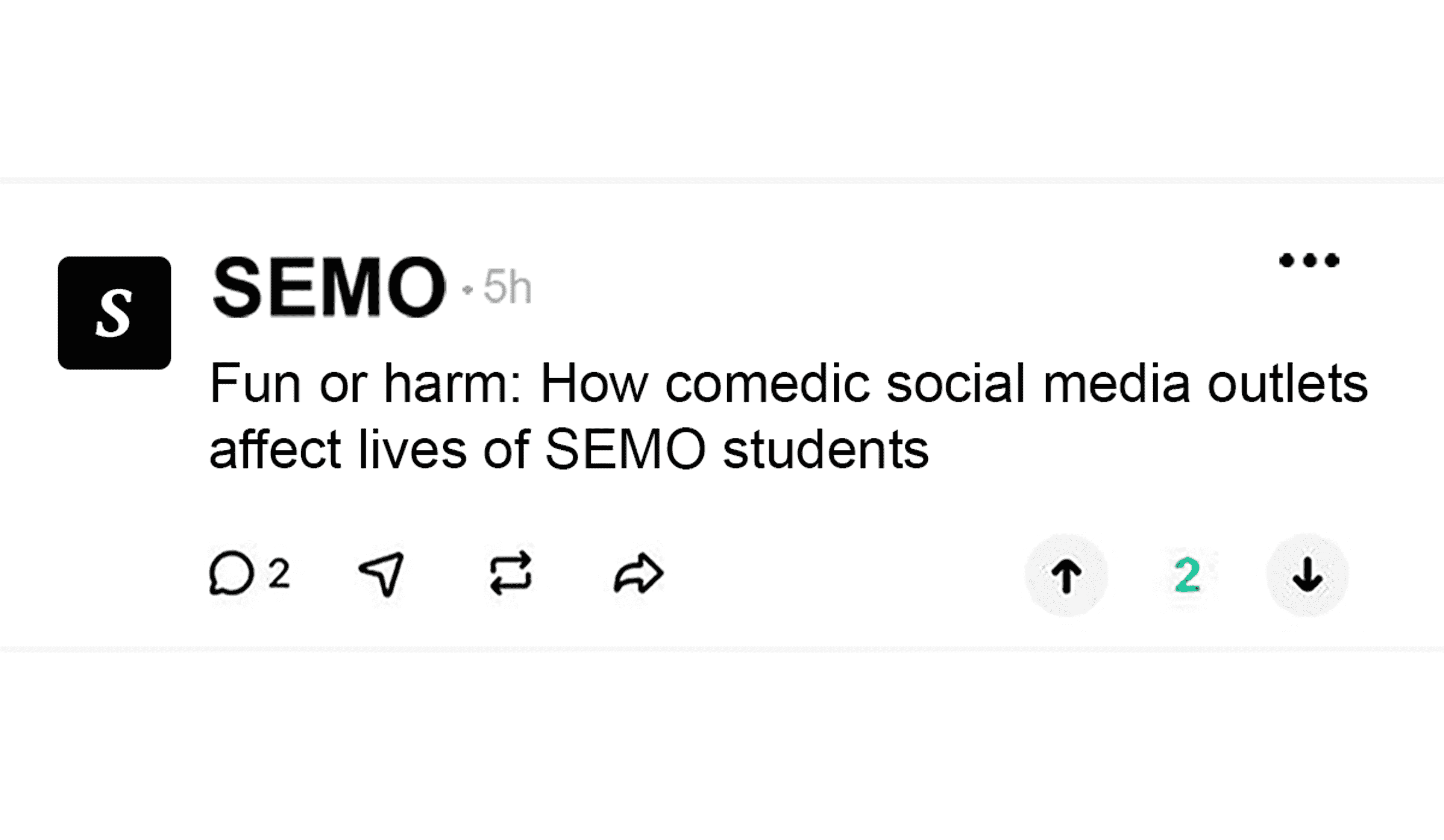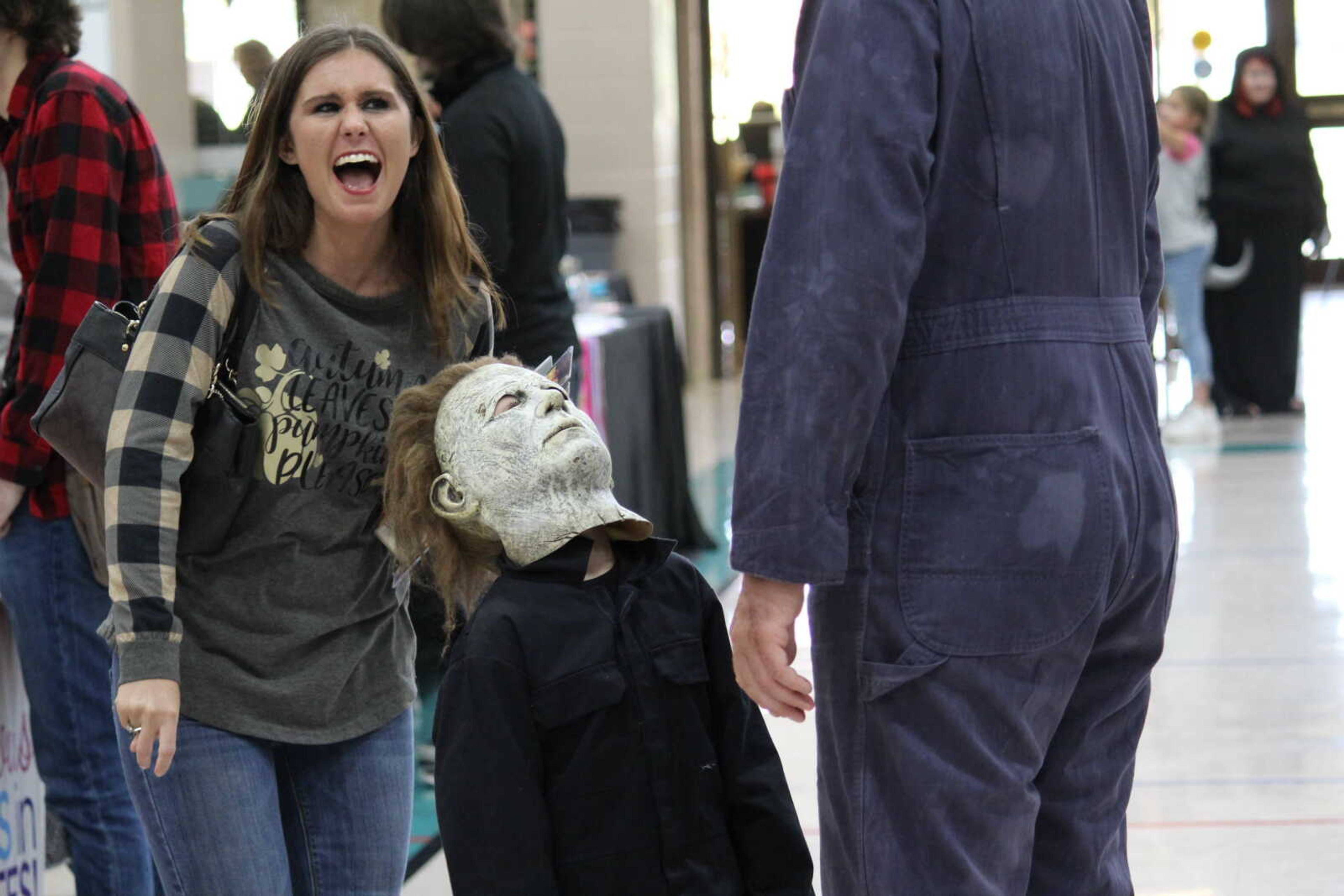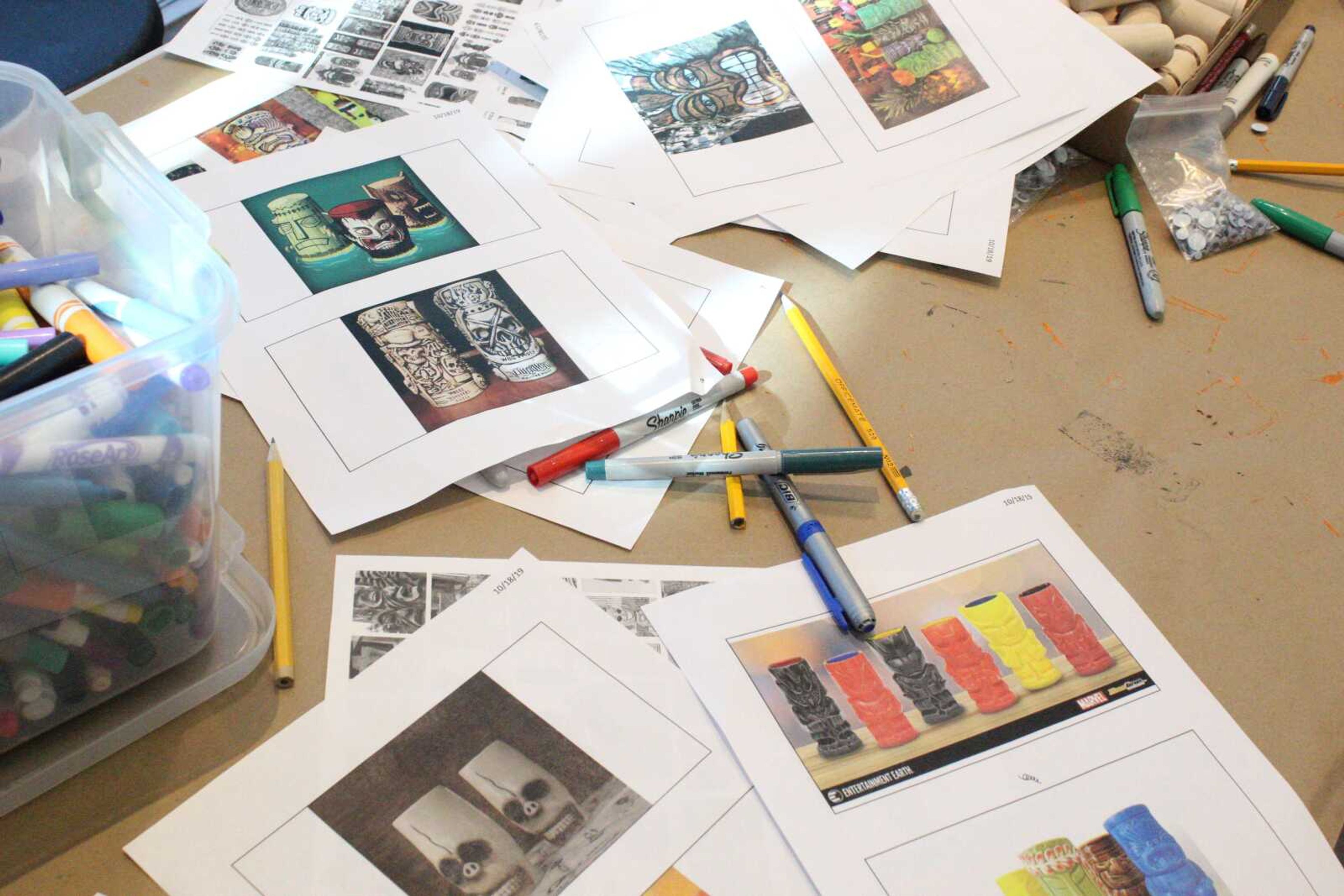Research conducted at Southeast Missouri State University shows an estimated 8 percent of the student population at Southeast is lesbian, gay, bi-sexual, transgender or questioning/queer. That's more than a thousand students who identify as LGBTQ, not including faculty and staff.
Research also shows that Southeast is one of the only two public four-year institutions in the state of Missouri yet to specifically prohibit discrimination based on sexual orientation. Some of the top private institutions in Missouri have adopted non-discrimination policies inclusive to sexual orientation as well.
One last statistic shows that not only do some of these institutions have a non-discrimination policy that covers sexual orientation, but they have for the past 20 years.
These eye-opening statistics all derive from the same 50-page report on LGBTQ programs and procedures at Southeast Missouri State University prepared by Southeast student and Student Government Association treasurer Nick Maddock.
"In my time here not only as a resident assistant but in other facets of the university where I've worked in leadership roles, I've had a lot of students come out to me and they've personally came and confided in me about their sexual orientation and/or their gender identity," Maddock said. "I've had a total of 10 students come out to me at this university, and out of those 10 students, eight of them are still closeted."
Maddock came out on Sept. 7, 2010, during his freshman year at Southeast.
"My coming out process was horrible here," Maddock said. "That's also another big driving force behind why I'm doing what I'm doing and asking the question, 'What can Southeast Missouri State University do to create a more welcoming, friendly and accommodating environment for both prospective and current LGBTQ students, faculty and staff?' Through my experience here I didn't have resources. I didn't have people to go to. I didn't have policies that were exclusive of my sexual orientation. At that point I was kind of alone."
Maddock started looking into policies and procedures specifically for the LGBTQ community around the beginning of December.
"There are several reasons why the non-discrimination policies based on sexual orientation and gender identity are important," Maddock said. "One of the most important impacts of the inclusion of these policies is the simple fact that faculty and staff members of the university can be assured that they will not be discriminated on these basis for hiring, firing, tenure, promotion, etc. based on these factors. However, I believe the indirect impact of that is even more important. By having these protections in place, we can close the gap on the competitive disadvantage we are currently sitting at compared to other peer institutions who have already implemented these and many other inclusive policies towards the LGBT community."
Drawn from page 13 of the report, a 2009 study from the Williams Institute, a think tank housed in the UCLA School of Law that exclusively conducts independent research on sexual orientation and gender identity law, on the Impact of LGBT-inclusive workplace policies found that employers who implement LGBT policies have seen employees experience greater job commitment, improved workplace relationships, increased job satisfaction, improved health outcomes of LGBT employees, more openness about being LGBT, increased productivity of LGBT employees and less discrimination against LGBT employees.
"With such a large portion of our faculty and staff eligible for retirement, it is more important than ever to implement these policies as soon as possible to insure strong recruitment and retention of talented LGBT faculty and staff members. Students will also take note of LGBT-inclusive policies on this campus. Having inclusive policies towards this diverse group is sure to lead to improved recruitment and retention outcomes for students as well," Maddock said.
Maddock has provided the report to university leaders, including President Dr. Kenneth W. Dobbins, but there has been no direct action taken to create a non-discrimination policy regarding sexual orientation and gender identity.
"I have no doubt in my mind that if we were to implement these policies we would be looked at as a more welcoming institution," Maddock said. "I think that it definitely will improve our campus climate overall. If we can show people that it doesn't matter red or blue, gay or straight, we are welcoming and were are inclusive of all forms of diversity, I think that speaks volumes."
When the fact of some questioning Maddock's involvement with the issue because he is a part of the LGBT community, Maddock openly stated, "Absolutely, there's always times where it's hard not to be biased when you're so passionate about an issue.
"When there has been [biased feelings] I think I've been able to understand some of the concerns, and I do understand the concerns. I disagree with them, and I think in the cost/benefit analysis of things the benefits are far, far greater than the costs are when implementing such policies of sexual orientation, gender identity and domestic partner benefits. But I do understand the other side. At times, yeah, I'm sure that there's bias that has leaked in, but I think I do a very good job at maintaining an open mind to all arguments."
Dobbins said he thought that Maddock's report was "well done."
"There were some things that could've been looked further into regarding all of our peer institutions, but overall well done," Dobbins said.
Dobbins aIso believes that anyone can come to Southeast and feel comfortable, no matter their sexual orientation.
"I think people come to Southeast for a variety of reasons. We provide a safe environment where people can succeed, and I think we do a good job at exactly that," Dobbins said.
In the University's faculty handbook there is a "Notice of Non-Discrimination" that states, "Applicants for admission and employment, students, employees' sources of referral of applicants for admission and employment, and all union or professional organizations holding collective bargaining or professional agreements with Southeast Missouri State University are hereby notified that this institution does not discriminate on the basis of race, color, national origin, gender, age, or disability in admission or access to, or treatment of employment in, its programs and activities."
Southeast also has an office that specially pertains to student body diversity called the Office of Equity and Diversity Issues. This office is responsible for implementing university policy and procedures regarding non-discrimination and sexual harassment. It states that its purpose is, "to ensure that no person is discriminated against or harassed in employment, educational programs, and activities on the basis of race, color, gender, national origin or disability."
The Student Organization Handbook's non-discrimination policy at Southeast does not currently include sexual orientation, but the Student Government Association passed a bylaw that includes sexual orientation, gender identity and expression in a "Statement of Non-Discrimination" during their weekly meeting on April 21.
Although the university does not have a policy in place that specifically refers to non-discrimination regarding sexual orientation and gender identity it has other policies in place for workplace violence and sexual harassment.
Southeast has also made notable strides in the LGBTQ community in the past year to try to accommodate and educate not only students but administration, faculty and staff to be more considerate and open to those who identify themselves as LGBTQ. These strides include the SafeZone training programs, creating a LGBT Student Advocacy Committee, as well as the creation of a first-ever LGBTQ graduate assistant position.
SafeZone training is an intensive program that educates students, faculty and staff at Southeast about the LGBTQ community to ignore ignorance and speak up against hatred and biased remarks.
SafeZone training officially opened to the campus community on March 15, but the entire administrative council at Southeast went through SafeZone training on March 25.
"I think that what we are planning to do and what we have done, I think is going to be very important to this group of students," Dobbins said. "Debbie [Dr. Debbie Below, dean of students and vice president for Enrollment and Student Success] was in charge of the committee on LGBT student advocacy and that committee has three sub committees and they have been working pretty diligently."
According to Below, Safe Zone training is an intensive three to four hour program where at the end of it anyone can say, "I'm an advocate. I'm an ally. I can put the sticker in my window and say that I am educated and support this community of individuals."
"We did conduct safe zone training first with the administrative council, which has proven to be probably one of the most important decisions made to up the level of education about the [LGBTQ] student population. There were a number of individuals who may or may not have chosen to go through this training on their own, but they're in leadership positions and realized regardless of their own personal feelings around this topic, we're all here to educate the student and provide a safe environment for students," Below said.
Along with the SafeZone training, the LGBTQ Student Advocacy Committee has been put into place to support the health and wellness of the LGBTQ community. The committee works to make sure that LGBTQ students have resources in a time of need and that the committee is constantly working to educate the campus community of LGBTQ best practices.
On top of everything else, Campus Life opened the application process for a new graduate assistant position on April 10. This person in this position will deal with LGBTQ issues around campus and act as an overall resource for LGBTQ students.
Page 5 of Maddock's report includes a graph that marks the different LGBTQ policies and procedures that 10 of the colleges and universities Southeast traditionally competes against for students have in place and compares them to Southeast.
Policies and procedures include a campus and student non-discrimination policy on sexual orientation and gender identity, benefits for domestic partnership, a LGBTQ resource center, SafeZone, gender neutral housing and restrooms and professional and student staffing for LGBTQ issues. Southeast has four of these, all of which have been added in the last two months. Other universities like the University of Missouri, Southern Illinois University and University of Missouri-Kansas City have all of these policies and procedures in place.
"[The GA position] is a huge stride and you see a bunch of institutions in the state of Missouri and nationally that have LGBT resource centers and I think that this is a stepping-stone in the right direction," Maddock said. "I think this will be hugely beneficial and I applaud the Office of Campus Life and Dr. Below, the dean of students for working on that and getting that in place."
According to Dobbins, the new GA that the university is hiring is going to make sure that the LGBTQ students feel comfortable and safe at Southeast.
"I think also in order for them to feel safe you have to have the education and awareness of those students and the administrative council, which is a group of individuals that represent all facets of the university," Dobbins said. "We had a special session of this committee and the administrative council go through SafeZone training, which I think is very important because it brought to light some issues that many of us might not have thought of. So that's one of the first things I think we need to do is the training awareness and education and having the ability to have these safe zones."
SGA senator Ryan Rhodes, who is openly gay, said as of right now he doesn't believe there are enough accommodations for LGBTQ students. He also thinks that the university needs to take a firm stance on it and that it would make LGBTQ students and parents feel safer about their attendance here. But he also believes that what they're doing right now shows a lot of promise for the future.
"I think SafeZone is a great start," Rhodes said. "It shows LGBT students that there are a good number of people they can come to if something is going on their life because of their sexuality. I think it shows that more and more people here are starting to care about each other and want to make them feel like the perfectly amazing people that they are."
Austin Cordell, an SGA senator and one of three finalists for the student position on the Board of Regents, said keeping up with other institutions shouldn't be the only reason to include sexual orientation in the university's non-discrimination policy.
"I think a non-discrimination policy protecting the rights of LGBT students certainly has a place at Southeast," Cordell said. "I believe it is very important to maintain policies which are being implemented at comparable universities, as it ensures that we as a campus are progressing with society's beliefs. As a straight male, I believe that I should have the same rights as a member of the LGBT community not just because it is what other universities are doing but because it is the right thing to do.
"I have quite an interest in following legal cases regarding the rights of LGBT community members, and I am confident that our society is becoming more accepting of diversity through legislation. It is very important to protect the rights of everyone, including LGBT students, because it is the right thing to do. By implementing a non-discrimination policy for LGBT students, we would be drafting that necessary legislation. I would like to see a non-discrimination policy for LGBT students to be implemented as soon as possible. Quite frankly, I can't believe that one does not already exist."
In conclusion Maddock's report states, "For over 100 years Southeast Missouri State University has been a leader in the region on taking proactive initiatives to propel our institution forward and make it the Unversity of First Choice for students, faculty and staff, as well as those employers who hire our graduates. The rapidly evolving climate of LGBTQ issues in the state, region and country, represents an opportunity for growth for our institution."
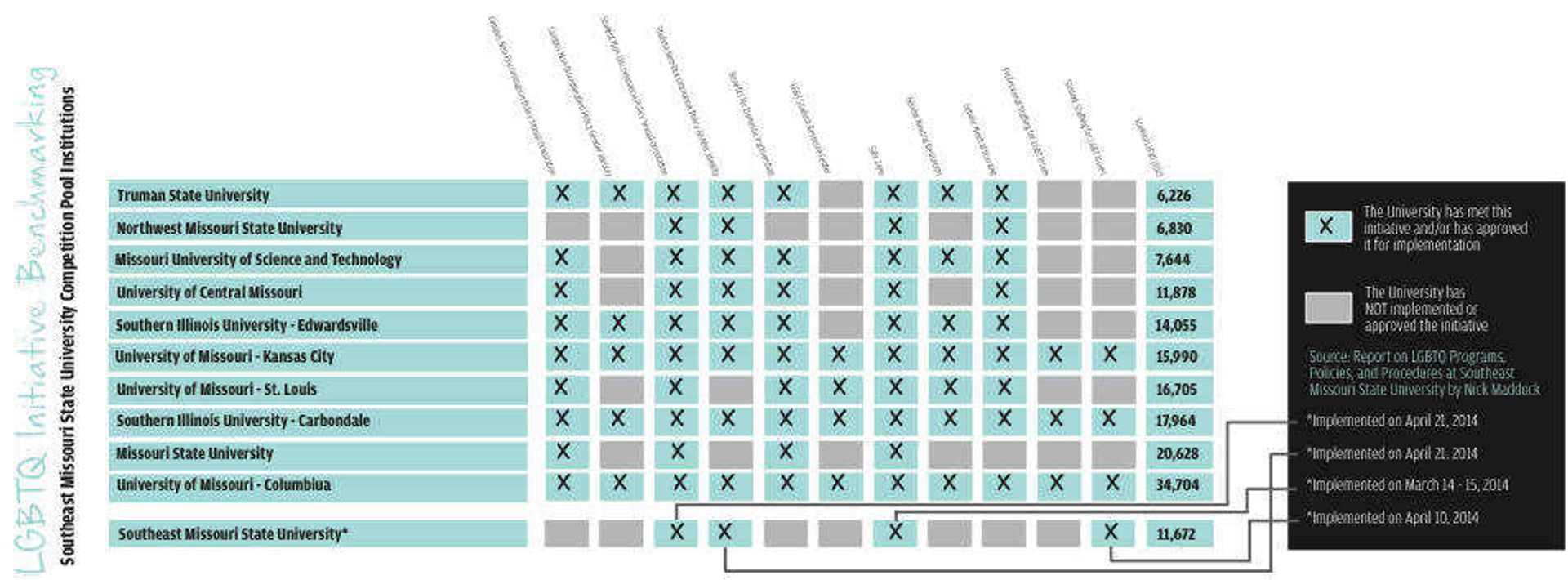
.
